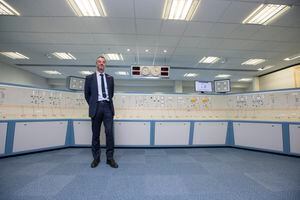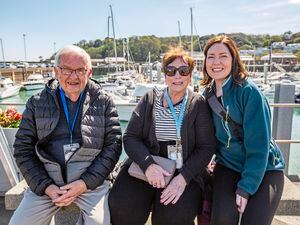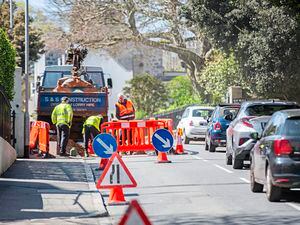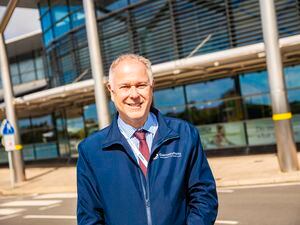Review of electricity tariffs as cost of importing power rises
GUERNSEY ELECTRICITY’S profits dropped significantly this year, triggering a review of the company’s tariff structure and its investment in capital projects.

The States-owned utility’s annual report and accounts for the financial year ending 31 March showed an operating profit of £1.17m. compared with £4.09m. the previous year.
‘The 2017/18 financial year has seen further positive progress for Guernsey Electricity Ltd and we are pleased to report that our three-year operating profit target has been met,’ said chairman Ian Hardman.
‘Profit for this year, however, has reduced significantly compared to the last two years, due largely to the Brexit impact of adverse exchange rates as we purchase most of our electricity in euros from France.’
The weakening of the pound against the euro following the Brexit vote has increased the cost of importation by more than £2.6m. per year.
The company paid a dividend of £749,000 to its shareholder, the States’ Trading Supervisory Board, this year, but will not be proposing a dividend at the 2018 annual general meeting.
Chief executive Alan Bates said ‘fundamental changes’ needed to be made in the way the electricity supplier charges for its services.
‘This level of profitability is significantly lower than previous year’s and unfortunately below the level required to continue to fund necessary investments in the island’s electricity infrastructure,’ he said.
‘This will become an issue as we plan for future capital investments. This financial year we have reinvested £8.4m. of cash back into our business activities, whilst maintaining tariff levels unchanged for six years.
‘When considering future profitability and both security of supply and the distribution of electricity activities, the company is now questioning how it will continue to create revenues from, and therefore enable future investments in, the necessary infrastructure.
‘This is due to the inevitable changing patterns of electricity power flows moving from the traditional radial flow from the power station at the centre to the consumer at the edge, to a future model where power will flow from prosumer [consumers who produce and store their own energy] to prosumer.
‘The decisions on charging made to ensure cost reflectivity and recovery today will determine the electricity market’s success over the medium-term.’
A second cable link to France is still being progressed, especially with the amount of electricity imported rising from 57% to 86% in the last three years.
‘The direct connection to France through the GF1 project will enhance electricity security and increase the capacity to access affordable low-carbon electricity,’ he said.
‘These improvements, however, have to be balanced against the cost of the project, and the potential impact on tariff evolution.’
Electricity sales in 2017/18 rose by £1.3m. on the year before. However, Mr Bates attributed that to the cold snap last winter. ‘We believe that adjusting for the weather, underlying demand is continuing the downward trajectory of previous years, which is reflecting energy efficiency improvements in our customer base.’





